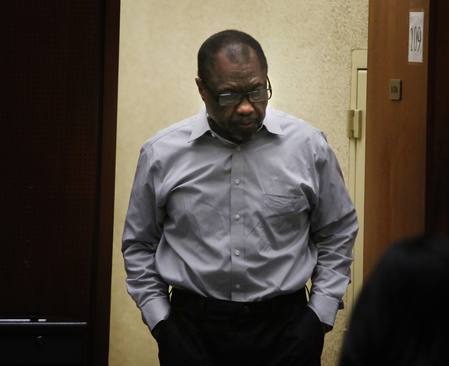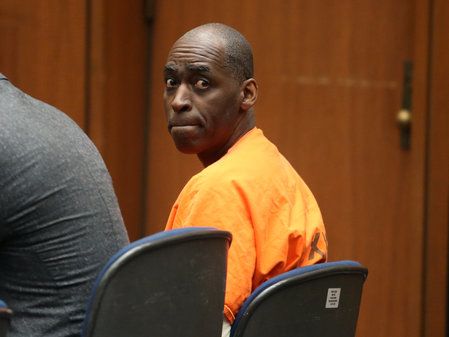Advertisement
U.S. court rejects NJ Senator Menendez’s bid to end corruption case

By Jonathan Stempel
(Reuters) – A federal appeals court on Friday refused to dismiss a corruption indictment against Senator Robert Menendez of New Jersey, rejecting the Democrat’s claim that the U.S. Constitution shielded him from prosecution.
The 3rd U.S. Circuit Court of Appeals said prosecutors could pursue charges that Menendez accepted campaign donations and gifts, including a stay in a Caribbean villa and private jet flights from a wealthy friend, Florida ophthalmologist Salomon Melgen, in exchange for using his office to lobby on his behalf.
“Members of Congress are not to be ‘super-citizens’ immune from criminal liability,” Circuit Judge Thomas Ambro wrote for a three-judge panel of the Philadelphia-based appeals court.
Friday’s decision means the case could eventually be headed for trial, and could complicate Democrats’ efforts to regain control of the U.S. Senate after the Nov. 8 election.
If Menendez, 62, were forced to give up the seat he has held since 2006, Governor Chris Christie, a Republican, could under New Jersey law appoint a temporary replacement.
The senator has pledged to stay in office while defending himself, but has given up his post as the ranking Democrat on the Senate Foreign Relations Committee.
Abbe Lowell, Menendez’s lawyer, said the senator intends to ask the entire appeals court to review Friday’s decision, and, if necessary, appeal to the U.S. Supreme Court.
The decision is “another step in the legal process that, at the end of the day, will show that Senator Menendez has always acted in accordance with the law,” Lowell said in a statement. “The Senator remains confident that he will be vindicated.”
Peter Carr, a U.S. Department of Justice spokesman, declined to comment.
LOBBYING OR POLICYMAKING?
In an indictment unveiled in April 2015, Menendez was accused of accepting bribes from Melgen in exchange for interceding in various matters on his friend’s behalf.
Prosecutors said these included an $8.9 million Medicare billing dispute, and a contract dispute with the Dominican Republic in which Menendez encouraged the State Department to intervene.
Menendez and Melgen have pleaded not guilty to the respective charges they faced in the 22-count indictment.
Last September, U.S. District Judge William Walls in Newark, New Jersey, dismissed four bribery counts but left most of the government’s case intact.
In his appeal, Menendez argued that his actions were protected by the Constitution’s “speech or debate” clause, which offers broad protection to members of Congress against prosecution for actions they undertake as legislators.
Ambro, however, said Menendez’s actions amounted to “essentially lobbying on behalf of a particular party,” and thus outside the “safe harbor” provided in the Constitution.
There is “a sufficient basis for the district court’s conclusion that the predominant purpose of the challenged acts was to pursue a political resolution to Dr. Melgen’s disputes,” Ambro wrote. “It was not to engage in true legislative oversight or otherwise influence broad matters of policy.”
MCDONNELL
Lowell had argued that Walls should have focused on what actually went on at the meetings in question, saying the record reflected that “high-level policy discussions” had taken place.
Ambro said Menendez remains free to argue that his efforts were directed toward influencing policy, and the government still has the burden at trial of proving otherwise.
“The evidence in favor of Senator Menendez will no doubt channel forcefully his position at trial,” the judge wrote.
Friday’s decision came one month after the Supreme Court unanimously overturned the bribery convictions of former Virginia Governor Bob McDonnell.
That court said routine political activities such as arranging meetings or reaching out to public officials generally could not form a basis for criminal prosecutions.
The 3rd Circuit focused mainly on the speech or debate clause, and did not mention McDonnell. Lowell said that case raised “important” issues that need to be addressed.
The case is U.S. v. Menendez, 3rd U.S. Circuit Court of Appeals, No. 15-3459.
(Reporting by Jonathan Stempel in New York; Editing by Bill Trott and Jonathan Oatis)












